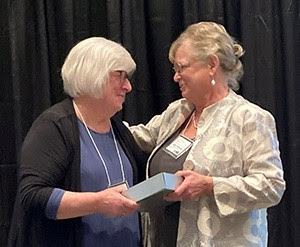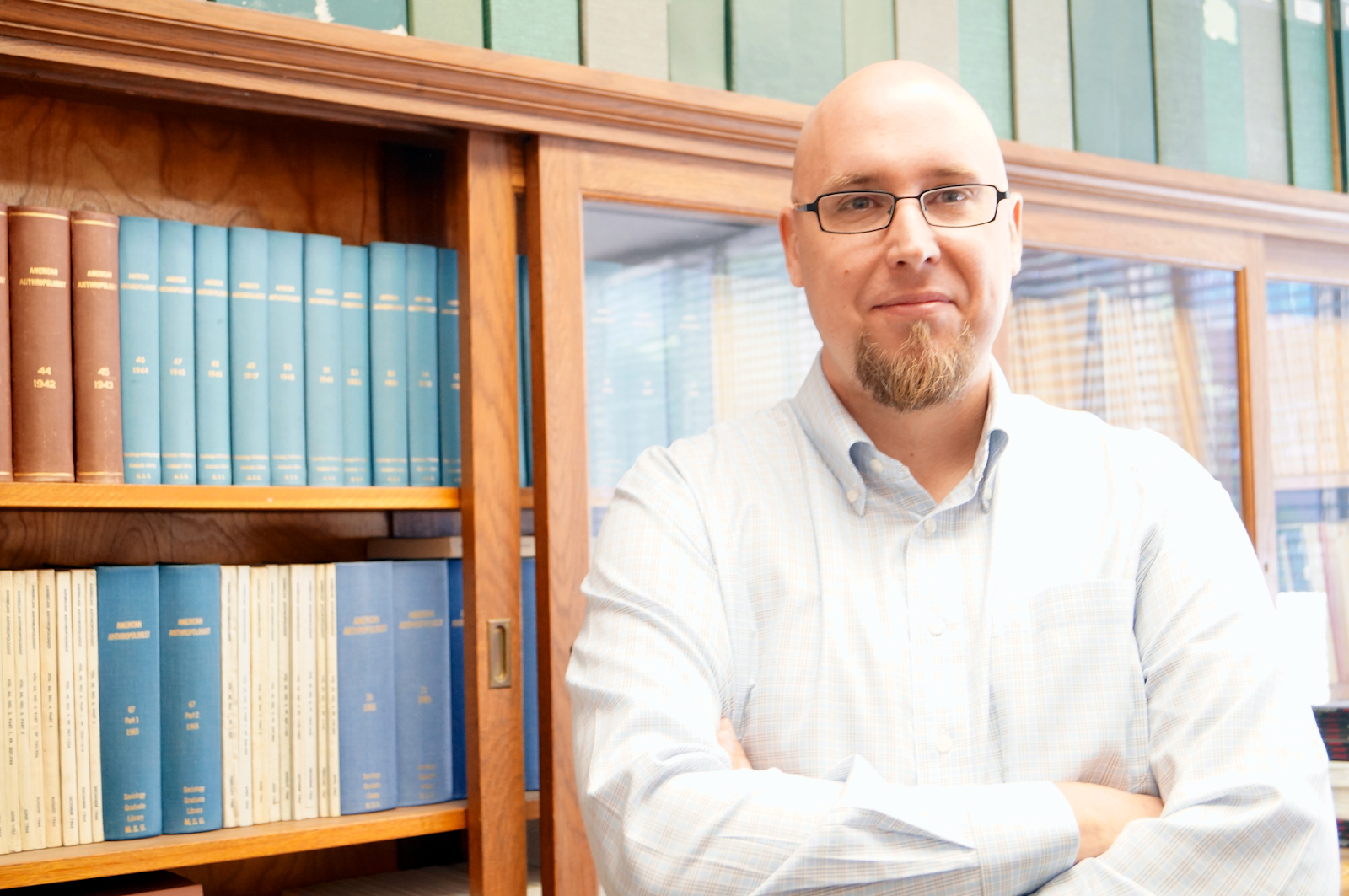-

Anthropology professor and former chair Dr. Jodie O’Gorman receives distinguished award and reflects on career
By Katie Nicpon During the annual Midwest Archaeological Conference (MAC), Dr. Jodie O’Gorman, MSU Department of Anthropology professor, received the Distinguished Career Award that recognizes archaeologists who have demonstrated excellence and contributed significantly and regularly to the advancement of Midwestern archaeology. “I”m honored to receive the Distinguished Career Award and I’m very grateful to those […]
-
Professor Emeritus Dr. William Lovis, Assistant Professor Dr. Kurt Rademaker, Adjunct Associate Professor Dr. Randolph Donahue, MSU graduates, and Geography colleagues publish in the journal PaleoAmerica
Department of Anthropology Professor Emeritus Dr. William Lovis, Assistant Professor Dr. Kurt Rademaker, Adjunct Associate Professor Dr. Randolph Donahue, MSU graduates, and Geography colleagues publish in the journal PaleoAmerica on the 12,200- to 11,600-year-old Hipwater PaleoIndian site in southern Michigan. PaleoAmerica is the premier international journal for research on the earliest human entries into the Western Hemisphere.This interdisciplinary and interinstitutional […]
-
Ph.D. Student Grace Shu Gerloff Publishes in Adoption & Culture
Department of Anthropology Ph.D. Student Grace Shu Gerloff published an op-ed in the special issue of the Alliance for the Study of Adoption and Culture journal, Adoption and Culture. The op-ed, titled, “Beyond Feelings: What’s Missing from Trauma-Centered Adoption Narratives,” problematizes overly pathological framings of adoption and encourages consideration for the ways adoption—and trauma—exist as products of institutional failures. Read the full article at: https://doi.org/10.1353/ado.0.0016 Abstract: Many […]
-

Associate Professor Ethan Watrall Elected as a Fellow of the Society of Antiquaries
The Department of Anthropology is pleased to announce that Associate Professor Dr. Ethan Watrall has been named a Fellow of the Society of Antiquaries. Founded in 1707 and granted a royal charter in 1751, the Society of Antiquaries is based in London and charged with furthering the study and preservation of heritage and archaeology in Britain and […]
-

Dr. Ampson Hagan joins the Department of Anthropology as College of Social Science Dean’s Research Associate
The MSU Department of Anthropology welcomes Dr. Ampson Hagan as their new College of Social Science Dean’s Research Associate. Dr. Hagan earned his PhD in anthropology from University of North Carolina Chapel Hill and joined MSU in fall semester 2022. “I applied to the College of Social Science Dean’s Research Associate Program at MSU because […]
-
MSU Department of Anthropology holds Human Remains Excavation Course for Michigan State Police
By Katie Nicpon Caption: The MSU Forensic Anthropology Lab facilitated a training session in Lansing for members of the Michigan State Police force. The training involved how to properly excavate and handle remains. The skeletons used for the training were made of plastic. Photo credit: Jacqueline Hawthorne, MSU College of Social Science photographer. In September, […]
-
Ph.D. Student Aubree Marshall Publishes in the American Journal of Biological Anthropology
Department of Anthropology Ph.D. student Aubree Marshall and co-authors Jessica S. Wollmann (Radford University, University of Toronto), McKenzie Schrank (Radford University, University of Colorado), and Laura Tobias Gruss (Radford University) published in the American Journal of Biological Anthropology. The title of the article is “Tibial torsion and pressures in the feet during walking: Implications for patterns […]
-

Associate Professor Dr. Ethan Watrall and Professor Emerita Dr. Lynne Goldstein Publish Two Edited Volumes with the University Press Florida on Digital Heritage and Archaeology
The Department of Anthropology is pleased to announce that Associate Professor Dr. Ethan Watrall and Professor Emerita Dr. Lynne Goldstein have published two edited volumes with the University Press Florida on Digital Heritage and Archaeology – Digital Heritage and Archaeology in Practice: Presentation, Teaching, and Engagement (https://upf.com/book.asp?id=9780813069319) and Digital Heritage and Archaeology in Practice: Data, Ethics, and Professionalism (https://upf.com/book.asp?id=9780813069302) […]
-
Associate Professor Dr. Masako Fujita and Ph.D. Candidate Nerli Paredes Ruvalcaba co-publish in the American Journal of Human Biology
Department of Anthropology Associate Professor Dr. Masako Fujita, Ph.D. Candidate Nerli Paredes Ruvalcaba and co-authors recently published in the American Journal of Human Biology. The article, titled, “Human milk lactoferrin variation in relation to maternal inflammation and iron deficiency in northern Kenya” explored how nutritional and disease stress among breastfeeding mothers might influence the immune […]
-
Associate Professor Dr. Masako Fujita publishes in the Cambridge University Press’ Experimental Results
Department of Anthropology Associate Professor Dr. Masako Fujita and co-author Eleanor Brindle recently published in the Cambridge University Press’ Experimental Results. The article, titled, “Comparing the creamatocrit of human milk before and after long-term freezing” evaluates the effect of long-term cryogenic storage on the creamatocrit, a technique for estimating the milk lipid content. This study […]